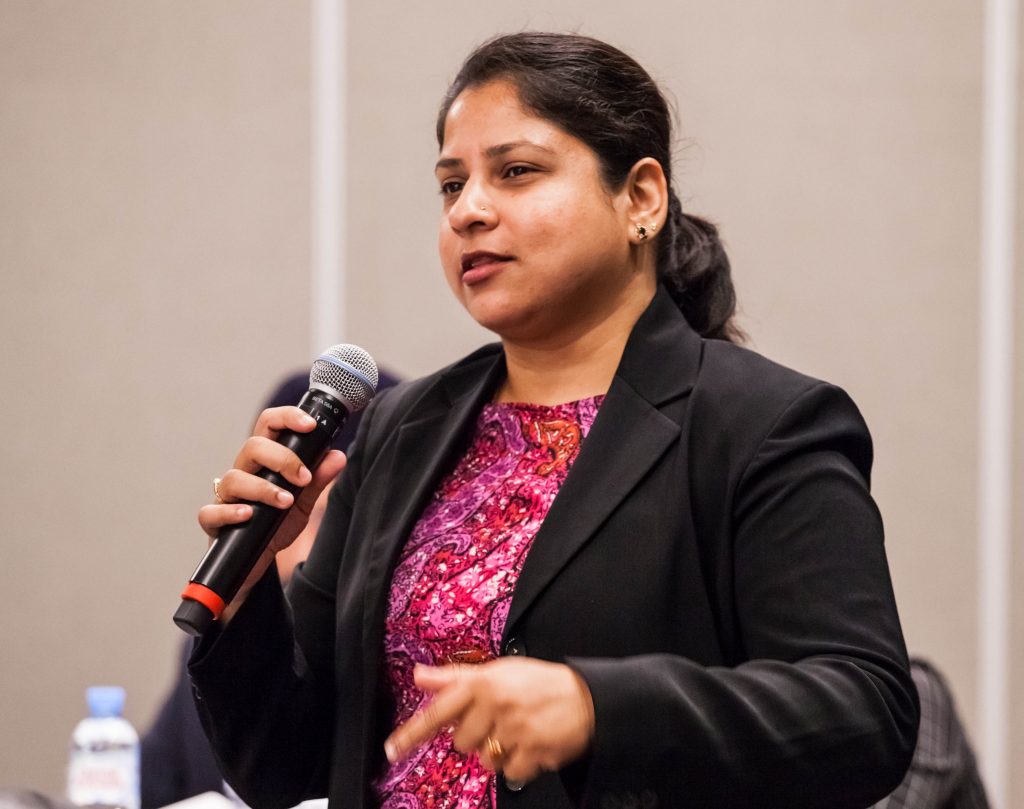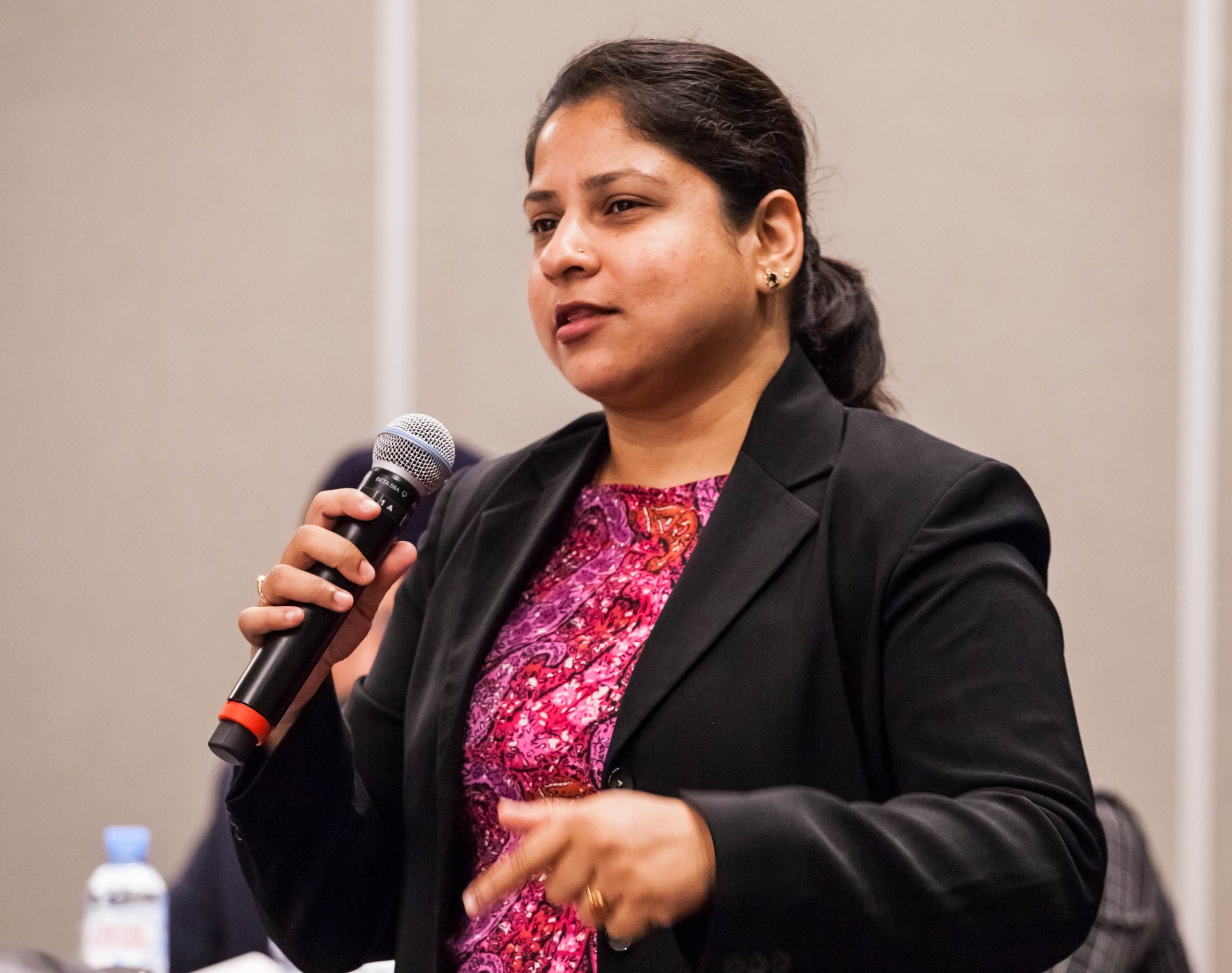This interview has been published by Namrata Singh and The SuperLawyer Team

Your career journey spans across various industries and geographies. Can you share a bit about how you started your career and the key moments that shaped your path to becoming a legal director at HARMAN International?
I started my career in Singapore and as an outsider and without much prior experience and knowledge about the legal field in Singapore, it was no doubt an arduous task. However, being a go-getter and having been blessed with good mentors as well as supportive colleagues, the journey so far has been really amazing. Diverse industries and countries have particularly helped me achieve certain things that are so invaluable and pertinent even today. For instance, the initial approach adopted to settle within a particular industry moulds your entire work life in that particular industry. Reaching out to the right people, gathering information about the actual “source” of information, finding mentors and peers, trial and error processes etc are all the key factors that contribute towards growth. Technically, one may be brilliant but if an individual has zero skills in all other aspects, it would be impossible to grow. Most importantly, one must be humble, grateful, dedicated and eager to learn. These soft skills coupled with a strong technical background pave the way for a successful career!
As a legal director, you’ve been described as a “transformation powerhouse.” What drives your passion for transforming legal processes within organizations, and can you share an example of a particularly impactful transformation project you’ve led?
I have a very keen eye for detail and this quality has probably helped me with the transformation projects. If a particular area of law can be dealt with in a better manner, I jump into action immediately. It is also equally important to involve all the right stakeholders right from the beginning so that all aspects are covered beforehand. In one of the companies I worked for, the entire negotiation life cycle of a particular agreement (which was the bread and butter of the business) was 250 days. After various discussions with all the stakeholders, I identified the gaps and came up with a gap analysis. Following this, an SOP was put in place which clearly articulated the roles and responsibilities of each of the stakeholders involved in the process along with the timelines. The project went live and the entire negotiation was completed in 30 days (as opposed to the 250 days)! This had a huge impact on the revenue recognition i.e. the company started to see profits in a relatively short time.
You’ve been involved in setting up subsidiaries and clinical trial laboratories across the Asia Pacific Region. What challenges did you face in these endeavors, and what strategies did you employ to overcome them?
Setting up entities is a different ball game altogether. Every such project is unique because the requirements vary on a case-by-case basis. For example: a representative office was set up in a particular country (as opposed to setting up a subsidiary) owing to various legal and taxation challenges. While the legal team is overall responsible for setting up entities, the commercial analysis at the very beginning should be performed by the Finance, Taxation and Business teams respectively. There should be a clear path to why a particular entity should be set up, what strategy should be adopted, Pros and Cons should be weighed carefully and above all, would this entity really matter ten years down the line…these are a few initial as well as crucial points which ought to be covered. In terms of challenges, this was the exact challenge I faced initially i.e. I used to go ahead with setting up entities purely based on Business decisions. Over a period, I realized that there is much more to it and then started to collaborate with various teams to understand the process thoroughly. In the entire scheme of things, the major challenge is to get everyone involved aligned (as different individuals have different temperaments, approaches etc).
Being a firm believer in sharing knowledge, you often speak at conferences and address students as a guest lecturer. What do you enjoy most about engaging with the student community, and what message do you hope to impart to them?
The best part about engaging with the students is their curiosity and line of questioning. They certainly think differently and constantly challenge as well as fascinate me! I also thoroughly enjoy it when the students outwit me. Also, I get to learn a lot in the bargain.
Your educational background includes a Diploma in Information Technology Law and certifications from Harvard University and UNITAR. How have these additional qualifications influenced your approach to legal practice, particularly in the rapidly evolving field of technology law?
If I don’t upgrade myself with the relevant qualifications promptly, I will be a loser. Going by this philosophy, to the extent time permits, I continue to upgrade myself in the areas of interest as well as relevance. By doing so, I can add more value to the organization by either introducing appropriate changes, upgrading the existing policies or contributing better in the management meetings.
In your role at Hitachi Data Systems, you managed negotiations for a variety of commercial contracts across different regions. What were some of the key challenges you faced in navigating these negotiations, especially in diverse cultural contexts?
Good question! Yes, diverse cultural backgrounds do matter to a great extent in contract negotiations. Initially, it was very difficult because I was new to the company and also the entire ecosystem. So there was a steep learning curve. Once I overcame that part came the cultural challenge. In Singapore, people are very wary of time and speed is of the essence. Whereas in certain other Southeast Asian countries, negotiations may not be fast-paced because issues with respect to hierarchy, internal processes, regulations, trust, bias and above all, language barriers come up mostly. So, I gradually learnt that “patience” is paramount. One needs to be patient to observe and understand the environment. Once the background is assessed appropriately, negotiation becomes smoother.
Outside of your professional endeavors, do you have any personal hobbies or interests that you’re passionate about? How do you balance your personal interests with the demands of your career?
I am passionate about travelling, teaching and working out. In today’s fast-paced world, it is very difficult to get time out for yourself. However, when one realizes how important it is to slow down, enjoy the small pleasures of life and respect one’s body and mind, one works towards achieving his/ her personal goals. While on a personal trip, to the extent possible, I avoid using my work phone. The other aspect I have realized is that chasing your dreams allows you to be happier and also gives you contentment. So, a healthier and happier mind functions better at work.
As a woman leader in the legal industry, what advice would you give to other women aspiring to leadership roles, especially in traditionally male-dominated sectors?
A positive attitude is a must-have quality. Aspiring women leaders should work harder and at the same time strike a balance between professional and personal lives. To do so, one just needs to be smart in terms of prioritizing. Women in particular should insulate themselves from any external factors which could disturb them mentally in particular. Last but not least, physical fitness plays a vital role in the overall well-being of an individual. So I encourage all aspiring women leaders to find time to engage in any physical activity at least four days a week.
Looking ahead, what are your aspirations for the future, both professionally and personally? Are there any new challenges or goals that you’re particularly excited to pursue?
My first inclination is towards teaching in the long run. At some point, when I retire, I would like to pursue teaching. I am also very passionate about ESG (Environment Social Governance) as well and am exploring a few ideas at the moment. When the right time comes, the ideas will be put into action.
Get in touch with smitha chandrashekar-
























